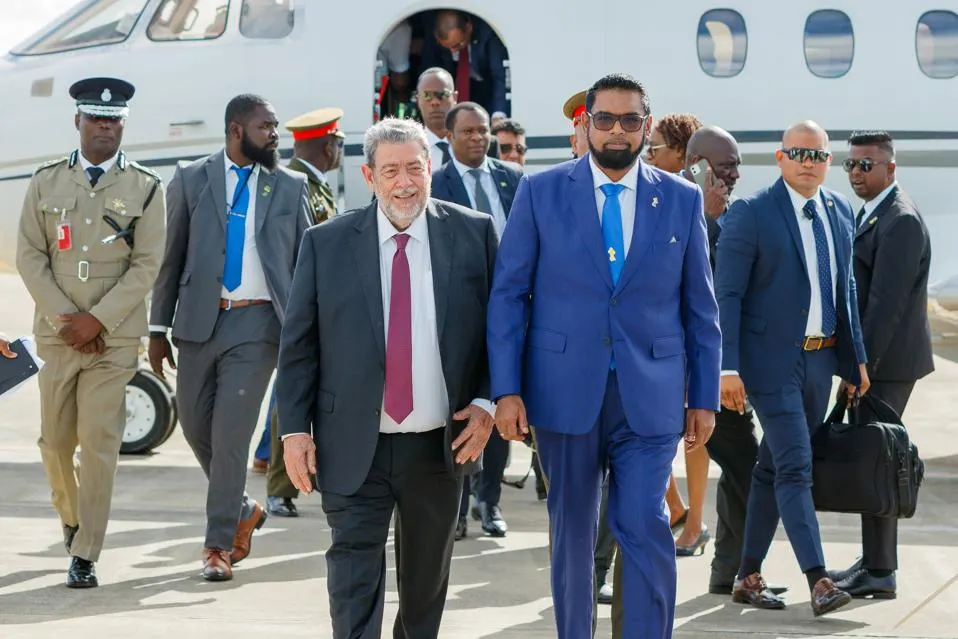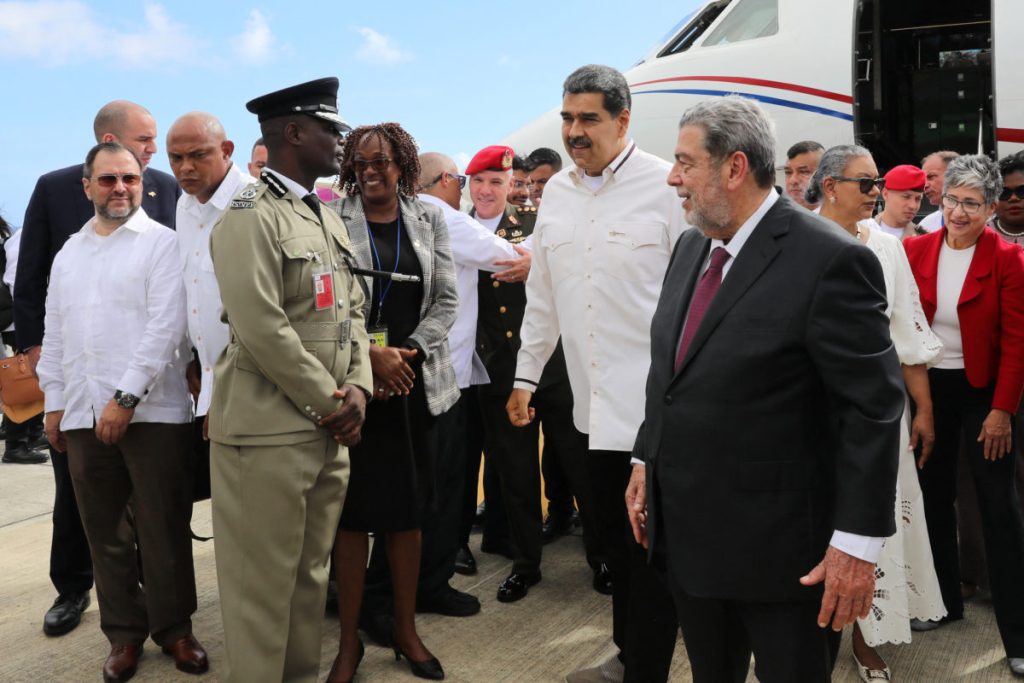In perusing articles and commentaries, including editorials, on the St. Vincent’s meet between Presidents Irfaan Ali and Nicolas Maduro, Prime Minister Dr Ralph Gonsalves’s motif for convening the get together was questioned. Anyone who has read and or followed Gonsalves would know that he has been a person of ‘political consistency’ as related to Caribbean interests. He stands unique among Caribbean politicians in his qualifications – economist (BA, UWI Mona), political scientist (MA Mona), progressive, trade unionist (PhD Manchester), and lawyer (Inn’s Bar London. He has been a lifelong ‘Jaganite’, admiring the late leader (since the 1960s) for his socialist credentials and has not deviated from left wing ideology. And he consistently championed democracy in Guyana from 1966 thru 2020. And as such, he was/is not someone who would compromise the interest of the region or that of Guyana for self-interest.
The smallness of the St. Vincent state was derided as host of the meet. And ulterior objectives (benefiting St. Vincent) were mentioned. Remarks were made about benefits and recognitions received by his country and several other Caricom states and or their leaders from Maduro, imputing those as motifs for their participation (presence) in the meeting. In short, allegations were made that Caricom states involvement was more self-serving than in siding with (supporting) Guyana on Venezuela’s claim to its territory. It is noted, for example, that several Caribbean states (Dominica and St. Vincent included) had their (PetroCaribe energy) debt cancelled of by Venezuela. Dominica was relieved of US$100M and St. Vincent US$70M debt. The PM of Dominica Roosevelt Skerritt is the Chair of Caricom. Several other Caricom members (including Belize) have their debt renegotiated and or some forgiven. Prime Minister Mia Mottley of Barbados was recently (last June) honored by Maduro with that country’s highest national civilian award. Prime Minister Dr. Keith Rowley of Trinidad and Tobago has an agreement for gas and a percentage of revenues from the nearby Dragon Field block in Venezuela. It is impossible to ignore the preceding benefits as motivation for wanting to maintain good relations with Venezuela.

Besides economic interests, nations also have an overriding concern about maintaining their region as a zone of peace. Any violence between states would have devastating (economic and social) consequences in the region and beyond.
Thus, it is inherently wrong to impute self-serving motif and or to infer that Dr. Gonsalves only had self-interest to bring the two nemeses together in his nation of St. Vincent. It was a high-level meet with high level attendance to guarantee its success. Dr. Gonsalves is interim Pro-tempore chair of ECLAC, a position that rotates and which comes to an end in 2024. Dominica PM also served as co-host of the meet with Caricom heads and other invited guests serving as interlocutors. The invitees included representatives of UN, Brazil, Honduras, among entities. Gonsalves merely took the initiative to write the two Presidents to meet and discuss the controversy. He was the right person to take the initiative since he chaired ECLAC to which both Guyana and Venezuela as members; Venezuela is not a member of Caricom. Gonsalves served as a host inviting the Presidents of both countries to talk with himself and other invitees serving as interlocutors assisting to broker peace. He is not a ‘selfish’ politician like several others from the region. He cared about the region and its people.
My first personal encounter with Gonsalves was at City College of NY where I was an elected Senator in the Undergraduate Day Student Government (1978 to 1982) that hosted his lecture. Gonsalves was a visiting Professor at Queens College of CUNY and in Spring 1980, with Vassan Ramracha as elected Treasurer, the CCNY DSG at my urging and tabling a motion for funding co-sponsored a Caribbean Conference where Gonsalves, Joey Jagan, Arjune Karshan, and a host of Caribbean intellects made presentations at Lewisohn Lounge south campus. (Chuck Mohan was there but I can’t recall if he spoke). There, Gonsalves and I exchanged views, and he publicly condemned electoral fraud in Guyana. He spoke against Caribbean authoritarianism. He praised Cheddi Jagan for his peaceful struggle for restoration of democratic rule in Guyana. He described Jagan as “a socialist giant” in the region and a hero who was respected by all comrades. Subsequently, Gonsalves would endorse the description accorded Jagan by then Prime Minister Maurice Bishop as “Dean of Caribbean Socialism” that was carried in the mass media.
So in his relations with Guyana, Gonsalves did not come across as someone pursuing selfish interests. He cared for democracy, peace, development, and the working class. Instead of criticizing him, we should praise the intent of Gonsalves to invite the leaders of Guyana and Venezuela to come together to talk about the border controversy. And we must commend Gonsalves and other regional leaders as well as the representatives of ECLAC, Brazil, and the UN to be closely associated with the meet that has brokered peace between Guyana and Venezuela. The meet would help to strengthen partnerships between and among states as well as continuing the long period of peace and security in the region. (Pix from a third party — published for public interests).
